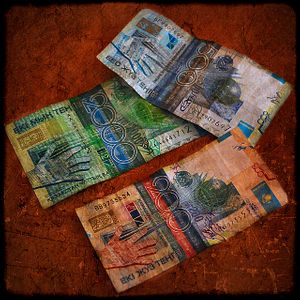This week, a little more than a year after being dismissed from his post as economy minister, Kuandyk Bishimbayev was sentenced to 10 years in prison after being convicted of bribery and embezzlement. He joins a select group of high-level officials to fall before corruption charges in Kazakhstan.
In 2015, for example, a massive corruption case targeted 21 former officials, including former Prime Minister Serik Akhmetov. He was convicted and sentenced to 10 years in December 2015 but was released early in September 2017. Akhmetov’s release was precipitated by his admission of guilt — during his trial he’d maintained his innocence — and request for clemency.
Kazakhstan, which ranked at 122nd out of 180 countries in Transparency International’s latest Corruption Perceptions Index, has long wrestled with corruption, from high-level embezzlement among bankers to street-level bribes to police. Kazakhstan’s ranking has improved marginally since 2013 and President Nursultan Nazarbayev has situated anti-corruption near the top of his agenda in public remarks, but often high-level corruption cases come with a political flavor that clouds the picture (more on this at the end).
Bishimbayev maintained his innocence throughout his trial, though some of those charged alongside him admitted guilt and cooperated with the authorities in exchange for better terms. In his first comments to the court in January, Bishimbayev apologized to the president, saying “I feel ashamed for the situation I am in now. I failed the president when I created my team… I picked up wrong people, who used me and my trust. I apologize to the president and to the nation for that.”
As I outlined in January:
Investigators say Bishimbayev embezzled about $3.1 million from a $130.6 million construction project. Bishimbayev reportedly received about $2 million personally.
The scheme, as the 23-person case demonstrates, took a network to achieve and involved two companies, laundering through payments disguised as being for construction workers’ food and housing, and routing to Bishimbayev via his cousin.
Bishimbayev’s corruption, according to the authorities, stemmed from his time as head of Baiterek Holding, a state-owned conglomerate that oversees and carries out government tenders. Another former Baiterek head was charged with corruption in 2016.
What set Bishimbayev apart was his age. Bruce Pannier profiled Bishimbayev last November, noting that the “golden boy” graduated from high school at 15 and from the Kazakh State Academy of Management in Almaty at 19. From there he earned a scholarship through the famed Bolashak program, which allowed him to get an MBA from George Washington University in Washington, DC while also apparently earning a law degree from Taraz State University in Kazakhstan. By 26, he was deputy minister of industry and trade and at 36 he became economy minister.
Pannier — and a piece from Eurasianet — focus some attention on the Bolashak program. Started in 1993, the program provides scholarships for high-performing Kazakh students to study abroad with the commitment to return to Kazakhstan to work for at least five years. Pannier commented that the program’s stellar members aside, there have been accusations that some students inducted into the program got the opportunity on the back of family connections. Eurasianet featured comments from Sultanbek Sultangaliyev, head of the Rezonans think tank, which cast doubt on the power of the Bolashak program to necessarily breed Kazakhstan’s future leaders:
Sultangaliyev said that the confidence afforded to the potential of management class-shaping initiatives like Bolashak was always misplaced.
“These illusions are not to do with the professionalism and creativity [of Bolashak graduates], but with the idea that young blood might be immune to corrupt forms of personal enrichment,” he said.
The hope that youth would be immune to corruption is certainly misplaced.
Returning for a moment to the issue of politics: Pannier, in his piece, also outlined Bishimbayev’s connections to various other key Kazakh figures and how his downfall can be read as part of the machinations of political elites in the country. One Kazakh political analyst quoted by Eurasianet said as much, noting that alongside a real battle against corruption is a political battle: “… there are clan groups who are using this factor to fight against their opponents. When some official or other is snatched up and thrown into jail, this is what you call ‘ditching the loser’s body.’”
This is one of the problems with politics in an essentially one-party state. (Yes, Kazakhstan has more than one political party, but it will only have one possible president as long as Nazarbayev lives.) The unipolarity of power pushes politics into backroom dealings and chessboard movements among elites. It seems certainly possible that Bishimbayev was corrupt, but his corruption may not have been the real reason he was tried and convicted.

































